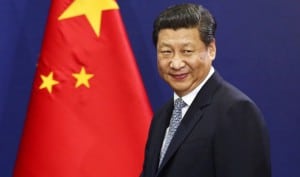-

Chinese Leader Xi Does China Need PR Help? We hear it every time we write about how brands should communicate during a crisis: Tell your story or someone else will tell it for you. Other oft-repeated dicta: Tell as much of your story as you can, and be honest. Keeping that in mind it will be interesting from a PR standpoint to watch China’s economy. Beijing has told the country’s economists, analysts and business reporters to keep negative views to themselves. In addition, China’s leader, Xi Jinping, visited his country’s three top media outlets to “remind” journalists to write positive stories, The Wall Street Journal reports. No doubt it’s true that governments the world over try to restrict release of damaging information. More than that, the job of communicators is to urge journalists to write good news stories. Still, we’re talking about a large difference of degree in China’s case. While China has long kept a close watch on political dissent, it tolerated honest reporting about the economy from foreign journalists based in China. Anecdotal evidence indicates that’s no longer the case. To be transparent in a story about a reduction in transparency, it’s important to note China blocks citizens from seeing The Journal, along with The Economist, Bloomberg, Reuters, The NY Times and Time. Google, Facebook and Twitter also are verbotten. While the Chinese economy seems fundamentally sound, it’s no longer growing as quickly as it once did. In addition, portions of its heavy industry are in heavy debt and are producing goods whose demand has slackened, which could lead to an estimated 2 million layoffs this year ( PRN, Jan. 18). While crisis is too strong a word to describe the state of the world’s second-largest economy, it’s difficult to know the truth when policy unofficially prohibits a free flow of accurate information. Will this lack of transparency be good for the economy?
- Chicken Little, NOT:Certainly more CEOs seem to be outspoken about social issues. Exhibit A might be Starbucks CEO Howard Schultz on gun control or Salesforce.com chief Marc Benioff, who’s taken to social media to blast Pat McCrory, the governor of NC, over the state’s controversial bathroom law. His April 18 tweet urged followers to push CEOs to do as he and the CEOs of IBM, PayPal and Deutsche Bank had done in pressuring McCrory. On the other hand, some urge CEOs to stick to running their businesses and avoid weighing in on social issues. The risk for brands is getting caught in the crossfire of an activist CEO. For example, on May 4, mayor Bill de Blasio urged fellow New Yorkers to avoid patronizing the three Chick-fil-Aoutlets in his city due to Chick CEO Dan Cathy’s donations to anti-LGBT rights groups. Chick-fil-A issued a statement in response, saying its restaurants serve and employ every person “with dignity and respect...regardless of their beliefs, race, creed, sexual orientation or gender.” Since 2013 Chick has reduced its donations to such groups. Cathy has admitted he regrets the resulting negative publicity that’s whacked Chick-fil-A.
- The Long Read is Dead?The rapidity of the digital age has left us with the attention span of goldfish, putting a premium on bite-size content and rendering anything more than 140 characters tantamount to kryptonite, right? Perhaps not. An extensive Pew Research Center study, Lo ng-form Reading Shows Signs of Life in Our Mobile News World, asks, “Will people engage with lengthy news content on their phones?” Short answer: yes, and there are loads of takeaways for communicators. Consumers, it says, spend more time on average with long-form news articles (1,000+ words) than with short-form stories. Total engaged time with long articles (123 seconds) was about 2x that of short articles (57 seconds). Pew’s huge data set included 117 million cellphone interactions with 74,840 articles from 30 news websites in September 2015. The study found while the number of short news stories was greater than long stories, both short and long stories were accessed at nearly the same rate. How readers arrived at a story was critical. Facebook drove more traffic, but Twitter users spent more time with both long and short news stories.
- News Bits: 40-year-old National Public Relations of Canadaacquired Shift Communications, headquartered in Boston. With annual billings of some $20 million, Shift will retain its name and leadership team. Gould + Partners said it represented Shift.
-

Melissa Selcher, VP, LinkedIn 
Drew O’Brien, EVP, Weber Shandwick People: Drew O’Brien, a senior adviser to Secretary of State John Kerry, is joining Weber Shandwick as EVP, global partnerships. In addition, O’Brien will lead Weber’s work with educational institutions. – Ogilvy upped Nick Ludlum to EVP and group director, corporate and public affairs. The 10-year Ogilvy veteran leads the agency’s crisis unit. – Former Cisco CCO/VP Melissa Selcher left to join LinkedIn as VP, corporate communications.
